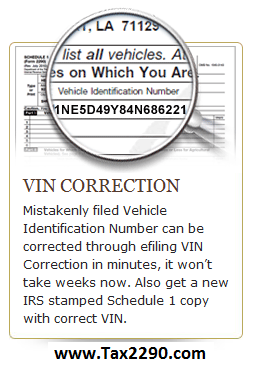IRS Tax Form 2290 is used to report Highway Heavy Vehicle Use Tax. A vehicle which weight 55,000 lbs or more are termed as Heavy Vehicle. It can either be a Commercial Vehicle, Agriculture Vehicle or Logging Vehicle. A vehicle estimated to travel a mileage of more than 5000 miles [7500 miles for Agriculture Vehicle] has to report Form 2290 taxes to IRS. NowIRS Form 2290 can be reported electronically by using a computer at work/home, no need to look for a CPA / Accountant to file your simple tax returns. Continue reading









